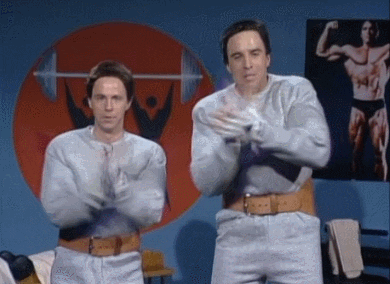Supervised Resistance Exercise for Patients with Persistent Symptoms of Lyme Disease.
D'Adamo CR, McMillin CR, Chen KW, Lucas EK, Berman BM.
Medicine & Science in Sports & Exercise. 2015 Nov;47(11):2291-8.
http://doi.org/10.1249/MSS.0000000000000683
Abstract
Purpose: The rapidly increasing incidence of Lyme disease has become a serious public health problem. Persistent symptoms of Lyme disease occur in over 40% of the 300,000 new cases diagnosed annually in the United States and often include debilitating musculoskeletal pain, fatigue, and poor health-related quality of life. No clinical practice guidelines for Lyme disease currently include resistance exercise partly because of concern over its safety and feasibility in this population. The goal of this pilot study was to evaluate the feasibility and preliminary efficacy of a supervised, low-intensity resistance exercise program in a sample of patients with persistent symptoms of Lyme disease.
Methods: An uncontrolled resistance exercise intervention was conducted under the supervision of an exercise professional. Participants performed three exercise sessions per week for 4 wk. Each exercise session consisted of one set of varying repetitions of the leg press, seated row, vertical chest press, standing heel raise, and supine abdominal crunch. Outcomes were assessed at baseline and the end of each week of intervention and included musculoskeletal pain, fatigue, health-related quality of life, vitality, and exercise performance. ANOVA and t-tests were performed to assess changes in the study outcomes.
Results: Eight patients participated in the exercise intervention. All participants successfully completed the intervention, and there were no adverse events related to exercise. Statistically significant improvements (P ≤ 0.05) were noted in exercise performance and in the number of days out of the past 30 d feeling healthy and full of energy (0.6 at baseline and 4.5 at end of intervention).
Conclusions: Although larger and controlled studies are necessary, supervised resistance exercise was feasible and may benefit patients with persistent symptoms of Lyme disease.
D'Adamo CR, McMillin CR, Chen KW, Lucas EK, Berman BM.
Medicine & Science in Sports & Exercise. 2015 Nov;47(11):2291-8.
http://doi.org/10.1249/MSS.0000000000000683
Abstract
Purpose: The rapidly increasing incidence of Lyme disease has become a serious public health problem. Persistent symptoms of Lyme disease occur in over 40% of the 300,000 new cases diagnosed annually in the United States and often include debilitating musculoskeletal pain, fatigue, and poor health-related quality of life. No clinical practice guidelines for Lyme disease currently include resistance exercise partly because of concern over its safety and feasibility in this population. The goal of this pilot study was to evaluate the feasibility and preliminary efficacy of a supervised, low-intensity resistance exercise program in a sample of patients with persistent symptoms of Lyme disease.
Methods: An uncontrolled resistance exercise intervention was conducted under the supervision of an exercise professional. Participants performed three exercise sessions per week for 4 wk. Each exercise session consisted of one set of varying repetitions of the leg press, seated row, vertical chest press, standing heel raise, and supine abdominal crunch. Outcomes were assessed at baseline and the end of each week of intervention and included musculoskeletal pain, fatigue, health-related quality of life, vitality, and exercise performance. ANOVA and t-tests were performed to assess changes in the study outcomes.
Results: Eight patients participated in the exercise intervention. All participants successfully completed the intervention, and there were no adverse events related to exercise. Statistically significant improvements (P ≤ 0.05) were noted in exercise performance and in the number of days out of the past 30 d feeling healthy and full of energy (0.6 at baseline and 4.5 at end of intervention).
Conclusions: Although larger and controlled studies are necessary, supervised resistance exercise was feasible and may benefit patients with persistent symptoms of Lyme disease.

